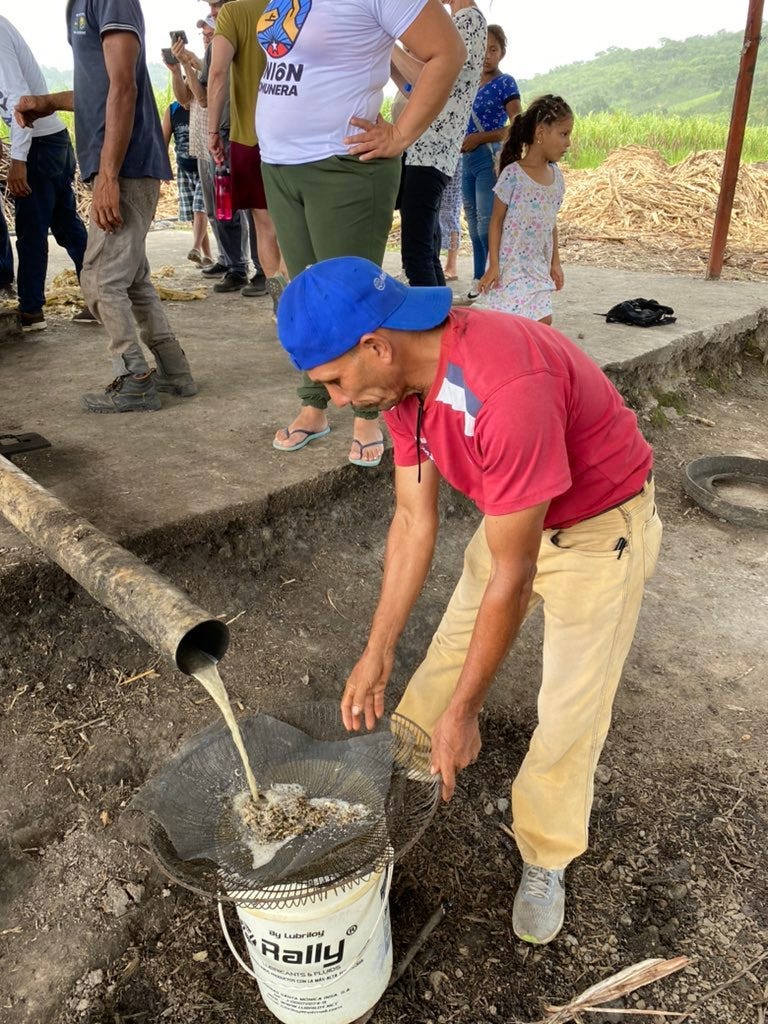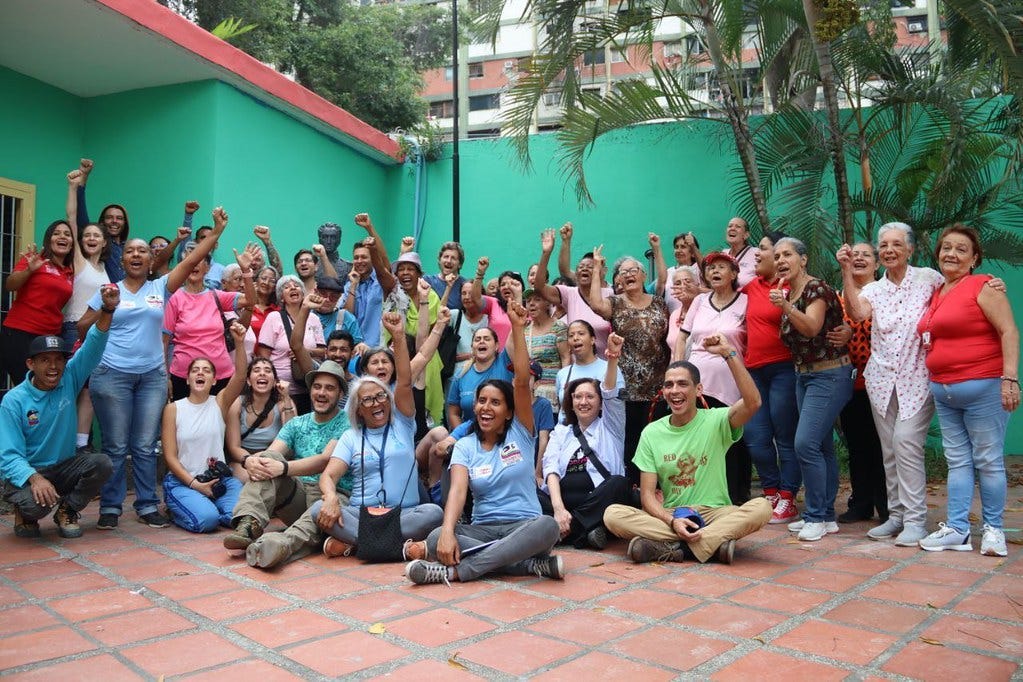Learning from Venezuela
Our Venezuela Delegation 2023 Recap
We just returned from Venezuela on a CODEPINK delegation to learn from and collaborate with the Venezuelan socialist communes. A commune is a group of ordinary people occupying shared land and coming together to plan and carry out projects through enterprises they own and run.
For 13 days, our group of 15 delegates had the privilege to collaborate with the Venezuelan socialist communes, and what we witnessed was nothing short of extraordinary.
COMMUNE EL PANAL 2021, CARACAS
Our delegation started at the El Panal 2021 commune in Caracas, which runs a textile factory, a fish farm, a pig farm, a recycling plant, and a radio station. They have their own monetary system and a popular education project called “Pluriversity”.
We went to an auditorium at the Pluriversity to listen to commune leader Robert Longa who discussed the history of commune-building in Venezuela, highlighting El Panal as a project rooted in love and resistance, especially in the face of U.S.-imposed sanctions. He also explained the importance of our group project in restoring a space for a community bank based on anti — capitalist principles , supporting the need to de-dollarize the economy and strengthen communal, socialist modes of production.
Under Anacaona Marin’s leadership , we actively engaged in El Panal’s collective decision-making process to identify the most efficient and politically relevant strategy for our volunteer work. After allocating teams for each worksite, we got down to work . Some of us worked on restoring the pool, where the commune had set up a tilapia farm to ensure enough protein during the pandemic. Others worked on the construction site of a communal bank, while the rest worked on the community laundromat.
El Panal 2021, older adults actively participate and receive respect and care through the Senior Citizens’ club known as “Club de Abuelos,” which operates as a self-managed program offering a combination of leisure activities, social engagement, and medical assistance.
COMMUNE LAS CINCO FORTALEZAS, SUCRE
We then headed to Sucre and arrived at the 5 Fortalezas Commune. Here, determined woman lead a sugar cane-growing commune that was established when a group of farmers took over land that had been historically owned by an exploitative landowner. They specialize in growing vegetables, legumes, and sugar cane, as well as breeding red tilapia fish.
5 Fortalezas Commune leadership told us how the project began-by recovering unused mill parts from nearby landlords-and about where they hope to be in terms of production (molasses, papelón/panela, rum) within a short time.
We worked with women from the large communal kitchen to recuperate the commune’s Mandala, a spiritual space organized around the 4 cardinal directions, blown down in a windstorm.
We gifted heirloom seeds to the women who run the community kitchen. They collectively grow, cook, & deliver food for all the pregnant women & elderly commune members so no one goes hungry.
COMMUNE EZEQUIEL ZAMORA, ANZOÁTEGUI
This community is committed to urban ecology and conservationism. It runs its own recycling and waste disposal enterprises. Additionally, it operates a social center for women where they implement government-supported programs for the promotion of women’s rights and a food distribution center.
Perhaps the most inspiring part of our trip was meeting the people of Venezuela. Despite all the challenges they face due to the U.S sanctions, they welcomed us with open arms. We shared meals, laughter, and tears with people from all walks of life — from street vendors to community leaders, from farmers to factory workers. They shared their struggles, but also their hope for a better future.
We also brought much-needed medical supplies to Venezuela, including antipyretic and contraceptive medication, menstrual cups, and prenatal vitamins. These essential health needs are severely limited due to inhumane sanctions imposed by the United States.
Originally published at
https://www.codepink.org
.









